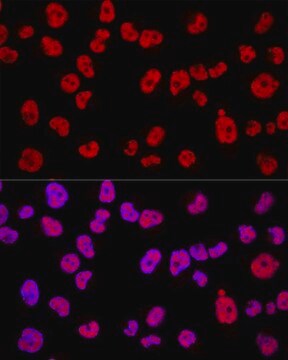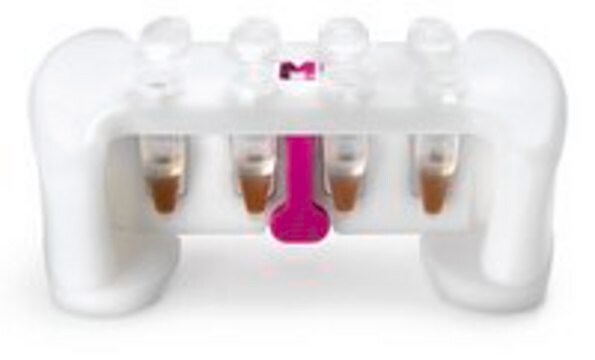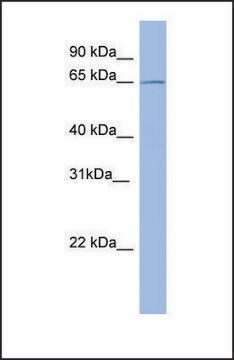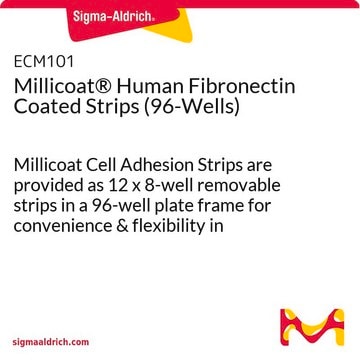05-1100X
Anti-Sulfotyrosine Antibody, Clone Sulfo-1C-A2
clone Sulfo-1C-A2, Upstate®, from mouse
Synonym(s):
Clone Sulfo-1C-A2 Antibody, Sulfotyrosine Detection Antibody
About This Item
Recommended Products
biological source
mouse
Quality Level
antibody form
culture supernatant
antibody product type
primary antibodies
clone
Sulfo-1C-A2, monoclonal
species reactivity
human, porcine, mouse, bovine
species reactivity (predicted by homology)
all
manufacturer/tradename
Upstate®
technique(s)
ELISA: suitable
immunoprecipitation (IP): suitable
western blot: suitable
isotype
IgG2aκ
shipped in
wet ice
target post-translational modification
unmodified
General description
This clone was derived from the antibody described in Kehoe et al., 2006.
Specificity
Immunogen
Application
Signaling
General Post-translation Modification
Quality
Target description
Physical form
Storage and Stability
Legal Information
Disclaimer
Not finding the right product?
Try our Product Selector Tool.
Storage Class Code
12 - Non Combustible Liquids
WGK
WGK 1
Flash Point(F)
Not applicable
Flash Point(C)
Not applicable
Certificates of Analysis (COA)
Search for Certificates of Analysis (COA) by entering the products Lot/Batch Number. Lot and Batch Numbers can be found on a product’s label following the words ‘Lot’ or ‘Batch’.
Already Own This Product?
Find documentation for the products that you have recently purchased in the Document Library.
Our team of scientists has experience in all areas of research including Life Science, Material Science, Chemical Synthesis, Chromatography, Analytical and many others.
Contact Technical Service








